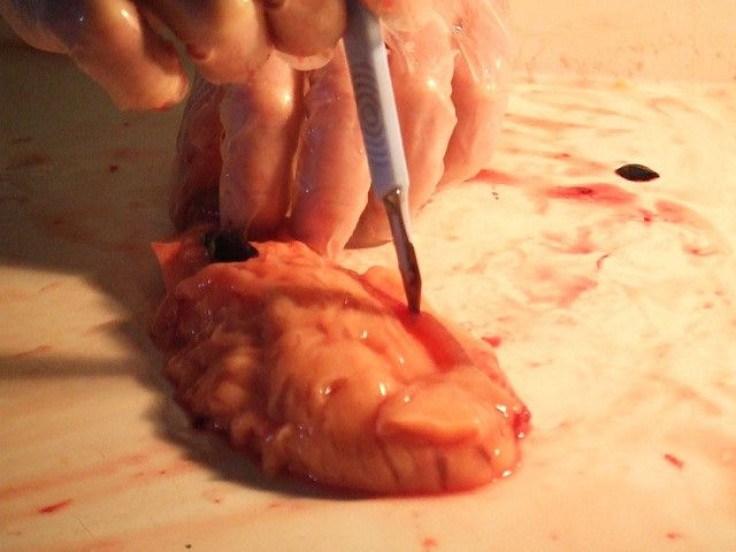College Student Joe Landolina Creates Healing Gel; How Does Veti-Gel Work? [VIDEO]

A junior at New York University created a gel that could stop heavy bleeding, potentially eliminating the use of bandages.
Joe Landolina, 20, of Ulster County concocted the gel, called Veti-Gel, with Isaac Miller, an NYU alum who graduated with a bachelor degree in finance and management. Landolina said that Veti-Gel could heal and clot severe wounds, even organs and major arteries.
"There's really no way to quickly stop bleeding except to hold lots of gauze on a wound," Landolina told The New York Post. "I thought if you could pour this gel into a wound, it would solidify and stop the bleeding."
His gel has already been tested on rodents and he demonstrated how it works on a deep cut of fresh pork loin that was injected with pig blood.
Landolina compares the gook to a cell's extracellular matrix, which naturally consists of an intricate network of proteins and polycaccharides that structurally holds the cell together.
Using the extracellular matrix matter from skin as his blueprint, he created the gel using the plant-derived versions of polymers.
"If they go into a wound, they build on existing polymers. It's like it tells your body to stop bleeding."
How it works:
- Body recognizes matrix produced by Veti-Gel
- The matrix meshes into wound's surface and instantly starts to form a seal over the wound
- The gel then activates the body's coagulation system to form a stronger clot
- You can easily remove the gel after bleeding stops or spray it with a protective coat that acts and feels like skin, but keeping gel in place will heal the tissue faster
Landolina first applied Veti-Gel on rats that had their livers and carotid arteries sliced. Cuts to the carotid arteries and jugular veins could persist for several minutes with large volumes of blood loss. The gel immediately stopped the bleeding. That was when he tested his hypothesis on the slab of pork loin.
In the video demonstration, Landolina lets the blood flow before he applies Veti-Gel and another liquid, which was used to quicken coagulation and stop the blood flow.
The young scientists are both founders of Suneris, Inc., a company that is promoting and working to commercialize their gel-technology. They recommended the solution for difficult injuries such as liver bleeds.
Landolina is pursuing his bachelor's in biomolecular and chemical engineering and master's in biomedical engineering. He and his business partner, Miller, are now plan to work with Englewood Hospital's cardiovascular surgeon Herbert Dardik to test Veti-Gel on live pigs and sheep.



























